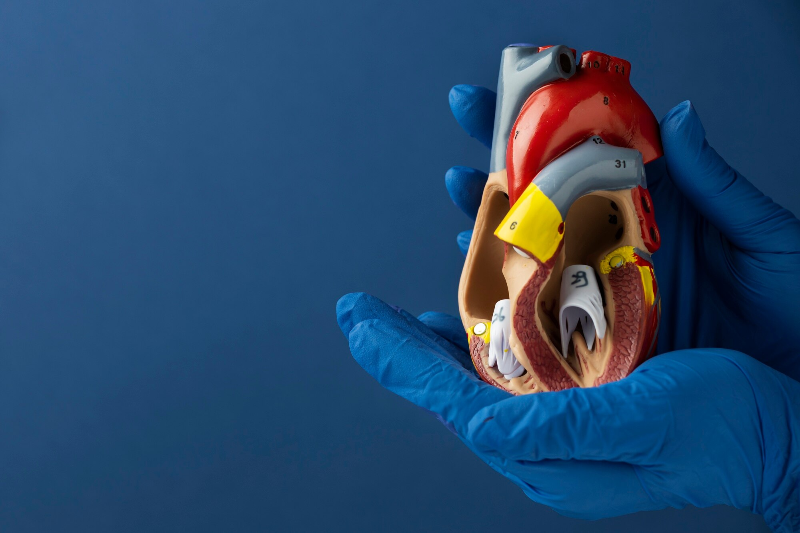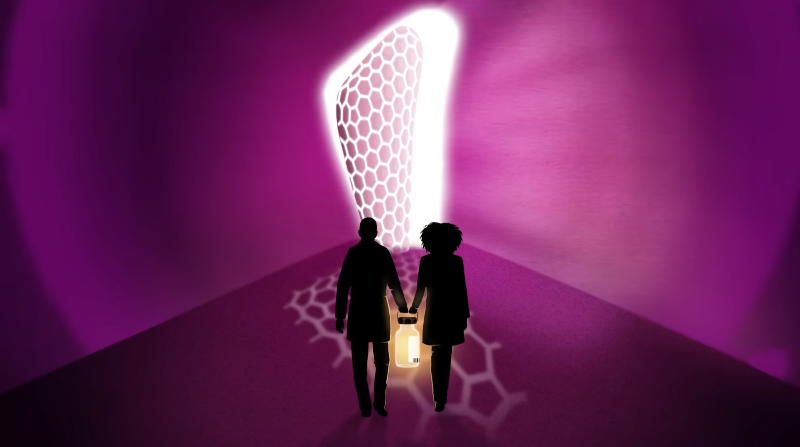By Angela Ryan Lee, MD
Medically reviewed by Yasmine S. Ali, MD, MSCI
Blood pressure and heart rate (pulse) are two important vital signs measured at your healthcare visits. Blood pressure is a measure of the force of blood on the blood vessel walls. Blood vessels can be thought of as a plumbing system, and they can widen or constrict to control blood pressure.
Heart rate is the number of times the heart beats per minute. It is determined by the electrical system of the heart.
This article discusses the relationship between your heart rate and blood pressure, factors that can affect each of them, and when to seek help for abnormal readings.
Illustration by Danie Drankwalter for Verywell Health
Does Heart Rate Affect Blood Pressure?
Heart rate and blood pressure are controlled separately. However, they can impact each other. This is especially true at extremes, such as when heart rate is very high or blood pressure is very low.1
In some cases, heart rate has a direct effect on blood pressure. For example, if the heart rate becomes dangerously high, such as during an arrhythmia, blood pressure often drops. This happens because the heart rate is too high for the heart to pump blood effectively.
On the other hand, blood pressure can also have an effect on heart rate. If you experience a condition called shock, in which the blood pressure is dangerously low, the heart rate typically rises. It does so to try to compensate and provide blood flow to the body. For example, this is seen in hypovolemic shock caused by low blood volume.
The Heart and Nervous System
High blood pressure and high heart rate can be seen with exercise and emotional stress. This is because the sympathetic nervous system is activated for the fight-or-flight response. Due to stimulation from the nervous system, heart rate increases and blood vessels constrict to increase blood pressure.
Factors That Affect Blood Pressure
Blood pressure is affected by the nervous system, hormones, the amount of circulating blood, and the heart. Blood vessels have special receptors on them that allow them to dilate, or widen, and contract in response to various changes.
Lower blood pressure may be seen with:
Times when the parasympathetic nervous system is more active, such as during sleep
Low blood volume, such as from bleeding or dehydration
Septic shock, in which blood vessels are dilated due to inflammation from an infection
Cardiogenic shock, in which the heart is not able to effectively pump blood to the organs
Medications like blood pressure medications, diuretics, prostate medications, and phosphodiesterase inhibitors, like Viagra (sildenafil) and Cialis (tadalafil)
Higher blood pressure is seen with:
Exercise
Activation of the sympathetic nervous system, such as by emotional stress
Increased activity of the renin-angiotensin-aldosterone system (RAAS), such as in kidney disease
A high salt diet
Medications like cold medicines, certain antidepressants, stimulants, and nonsteroidal anti-inflammatory drugs (NSAIDs)
Alcohol
Measuring Blood Pressure and Heart Rate
Blood pressure is measured with a blood pressure cuff and given in units of milligrams of mercury (mm Hg). Heart rate can be measured with an automated blood pressure cuff, with a pulse oximeter, or manually by counting the pulse. Heart rate is given in units of beats per minute (bpm).
Factors That Affect Heart Rate
Heart rate is very sensitive to the nervous system, hormones, and volume status. This includes:
Sympathetic and parasympathetic nervous system influences
Exercise and fitness (resting heart rate is lower in people who have high physical fitness)
Thyroid hormone levels
Dehydration
Caffeine (can increase heart rate)
Medications such as stimulants, asthma medication, some antidepressants, and thyroid medication can increase heart rate. Drugs including beta blockers, calcium channel blockers, and digoxin can slow heart rate.2
When to See a Provider
A single abnormal reading for blood pressure or heart rate is not always a cause for alarm. However, it's important to know when to seek medical attention.
High Blood Pressure
Anyone who notices high blood pressure readings should be evaluated by a healthcare provider. High blood pressure increases the risk of stroke, heart attack, and heart failure.
Tips for Measuring Blood Pressure
Blood pressure is best measured in a state of comfortable rest. First, sit on a chair with your feet on the floor for five minutes. Make sure your arm is at heart level and rests on a table. Then take your pressure, being sure to use a right-sized cuff. Don't take your pressure within 30 minutes of exercising, smoking, or eating.3
Low Blood Pressure
Low blood pressure in the presence of symptoms like lightheadedness, fatigue, or fainting, with signs of bleeding or infection, is also a reason to have a medical evaluation.
Be sure to tell your healthcare provider about any recent medication changes. Discuss any signs of infection (like fever, cough, diarrhea, vomiting, or painful urination), or signs of bleeding (like dark colored stools or blood in the stool).
High Heart Rate
When not triggered by exercise, emotional stress, or caffeine, high heart rate can indicate an underlying problem. High heart rate can cause symptoms such as:4
Fatigue
Palpitations (heart rate changes)
Lightheadedness
Dizziness
Chest pain
Shortness of breath
If you have periods of high heart rate with palpitations, make note of whether your heart rate feels regular or irregular. Also note if the changes started suddenly or gradually. This information can be helpful as your healthcare provider looks for certain patterns of arrhythmia.
If your healthcare provider suspects an arrhythmia, they may recommend a wearable heart monitor that can diagnose the arrhythmia. Your provider may also order lab tests like thyroid hormone tests and electrolyte levels.
Low Heart Rate
Some people who are physically fit naturally have a low resting heart rate.2 Heart rate also normally decreases during sleep. If a low heart rate is found in a young and otherwise healthy individual, and it is not causing symptoms, it is not likely a cause for alarm.
However, a low heart rate can indicate an underlying problem with the heart, such as heart block. Heart block is a condition in which the heart's electrical system is not functioning properly. Symptoms can include fatigue, lightheadedness, dizziness, and fainting. Sometimes heart block requires a pacemaker.
When to Seek Medical Attention
Sometimes heart block is caused by a heart attack. If you have chest discomfort or nausea and a low heart rate—or any other symptoms of a heart attack—seek medical attention immediately.
Summary
Blood pressure and heart rate are two closely linked vital signs that help to ensure the brain and organs receive enough blood flow. They function separately, but one can change in response to the other.
It's normal for blood pressure and heart rate to increase in response to exercise and stress. Other reasons for having blood pressure or a heart rate that is too high or low may suggest an underlying health problem.
5 Sources
Verywell Health uses only high-quality sources, including peer-reviewed studies, to support the facts within our articles. Read our editorial process to learn more about how we fact-check and keep our content accurate, reliable, and trustworthy.
American Heart Association. Blood pressure vs. heart rate (pulse).
American Heart Association. All about heart rate (pulse).
American Heart Association. How to accurately measure blood pressure at home.
American Heart Association. Tachycardia: fast heart rate.
American Heart Association. Understanding blood pressure readings.
By Angela Ryan Lee, MD
Angela Ryan Lee, MD, is board-certified in cardiovascular diseases and internal medicine. She is a fellow of the American College of Cardiology and holds board certifications from the American Society of Nuclear Cardiology and the National Board of Echocardiography. She completed undergraduate studies at the University of Virginia with a B.S. in Biology, medical school at Jefferson Medical College, and internal medicine residency and cardiovascular diseases fellowship at the George Washington University Hospital. Her professional interests include preventive cardiology, medical journalism, and health policy.







Post comments